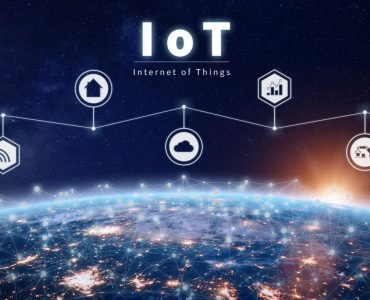In a world where your coffee maker judiciously suggests the perfect brew based on your mood, and your car decides it’s too risky for you to drive on a rainy day, CES 2024 unfolded like a modern-day tech oracle. The event was a spectacle of AI innovations, where it seemed like even the AI had its own AI, possibly to discuss the existential crisis of being an algorithm.
At CES 2024, it was apparent that AI isn’t just a part of our lives, it’s sneakily becoming life itself. Imagine a world where your toothbrush critiques your brushing technique, or your refrigerator scolds you for that late-night ice cream binge. This year, AI took a leap from our phones and computers into virtually every consumer product imaginable. We saw AI-enhanced baby bottles that could measure and adjust milk temperature, beds that could analyze sleep patterns, and even smart mirrors that offer fashion advice. It’s like living in a sci-fi movie, except the robots are more subtle and judgmental.
CES 2024 showcased AI’s evolution from a tool for convenience to a ubiquitous presence. Your morning starts not with a blaring alarm but with a gentle nudge from your AI assistant, which already read your schedule and synced your activities for the day. This level of personalization and prediction is not just impressive; it’s revolutionary. The leap from smartphones to smart homes, cars, and personal gadgets indicates a significant shift. AI is no longer just assisting; it’s orchestrating our lives.
The standout theme this year was personalization. AI at CES 2024 wasn’t about generic solutions; it was about hyper-personalized experiences. Whether it was fitness equipment that adjusts to your body type and workout history or entertainment systems that curate content based on your mood and past preferences, the focus was on AI systems that know you better than you know yourself. This hyper-personalization is both fascinating and slightly unnerving, as it blurs the line between technology serving us and shaping us.
Interconnectivity and Data at CES 2024
Another key highlight was the interconnectivity of AI systems. Your car communicates with your home security system, which in turn talks to your smartphone, creating a seamless network of AI-driven devices. This interconnectedness, while offering unparalleled convenience, raises significant concerns about privacy and data security. The more integrated these systems become, the more vulnerable we are to data breaches and privacy invasions.
Ethical Considerations and AI Accountability
With AI becoming more autonomous and decision-making, ethical considerations were a hot topic at CES 2024. How do we ensure AI systems are fair and unbiased? Who is responsible when an AI makes a wrong decision? The event highlighted the need for robust ethical frameworks and accountability in AI development and deployment. As AI systems make more decisions for us, the question of control and oversight becomes increasingly important.
The Economic Impact
The proliferation of AI is set to radically alter the job market. While AI creates new opportunities in tech and data analysis, it also threatens traditional roles in sectors like customer service and manufacturing. This shift demands a rethinking of job training and education to prepare the workforce for an AI-dominated future.
Looking ahead, the integration of AI into every aspect of our lives has profound implications. On the positive side, AI can lead to increased efficiency, convenience, and even safety. Smart cars reduce accidents, AI health monitors can predict and prevent diseases, and AI-driven energy systems can optimize power usage for environmental benefits.
However, the negatives are equally significant. There’s the risk of over-reliance on AI, loss of privacy, and diminished human autonomy. As AI systems make more decisions, the human element in decision-making could diminish, leading to ethical dilemmas and challenges in accountability.
Moreover, the digital divide could widen, with those lacking access to advanced AI technology being left behind. And as AI continues to learn and evolve, the potential for unintended consequences grows, raising questions about control and oversight.
CES 2024 was a window into a future where AI is not just a part of our lives but a fundamental component of our daily existence. The event showcased the astonishing advancements in AI technology, painting a picture of a future that is both exciting and daunting. As we embrace this AI-infused world, it’s crucial to balance the benefits with mindful consideration of the ethical, privacy, and societal implications. The challenge lies not just in developing advanced AI but in ensuring it enhances our lives without diminishing our humanity.
If you like this story you should check out some of the other stories in the Space Section of my blog.







